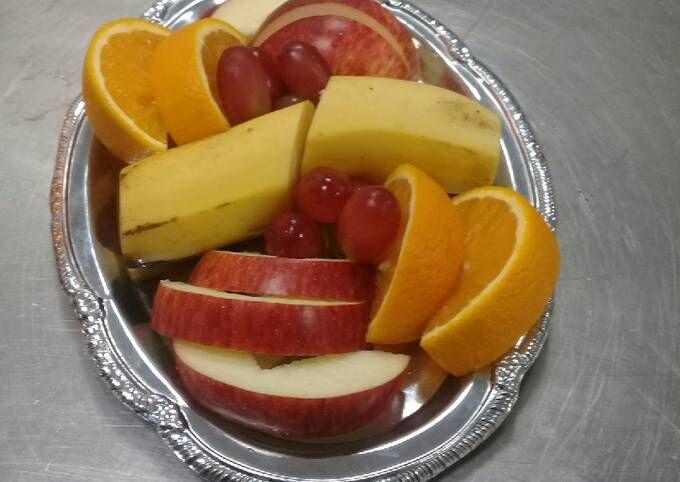
The following is the text of the essay that won third prize in this year’s My Marianas Writing Contest, sponsored by the Northern Marianas Humanities Council. The contest’s theme was “Threads of Tradition.”
“I’M sorry, I love you.”
Five words my parents never told me, yet I knew that their love knew no bounds.
Growing up, I never understood why my fruits were cut up into uneven pieces, stained with garlic or ginger bits. My mother, telling me to “快快学习” (hurry, and study) in Mandarin, while putting down a platter of sliced fruits on the dining table I sat doing homework. At the time, I thought it was careless. A rush job. Like they couldn’t bother rinsing the knife or cutting board before slicing apples, or washing their hands before peeling an orange meant just for me. I’d wrinkle my nose at the spicy tang clinging to the fruit, wondering why something meant to be sweet came with so many aftertastes. Oftentimes, I’d scrape off the first layer of fruit just to escape the weird traces of something else other than the fruit itself. Admittedly, I’d even throw out the ones I couldn’t salvage. Over time, I realized, no matter how much I scraped, what’s once contaminated will stay contaminated. All I could do was to make it taste less tangy, less salty — less of contamination and more of the pure fruit. Years went by of me eating garlic-stained apples or soy sauce flavored oranges that my parents prepared so, so gently.
Those years were where I drifted apart from my parents. The language barrier between us as they spoke perfect Mandarin while I spoke fluent English made the Chinese heritage in me complicated. Those years were also the ones where I had stuffed tissues stained with the surface layer of fruit somewhere out of sight from my parents, the same years where I’d grown to be able to peel my own oranges, slice my own apples. They were also the years when I’d wrap up the fruit pieces I didn’t like from the platter with scratch paper, hiding them away so my parents wouldn’t know I’d thrown them into the trash. The extra steps I took to hide how I discarded their efforts in cutting up fruit for me — efforts that, at the time, I couldn’t see as anything but unnecessary and frustrating. Because, somehow, despite my own efforts, there would always be those sliced fruits on a platter on the dining table. Slowly, quietly, I built this resentment towards those fruits that were always waiting for me, regardless of how much I tried to avoid them. After all, if you want to do something, wouldn’t you want to do it right — wipe off the knife, start fresh, and give it the care it deserves?
What I didn’t realize, though, was that with every piece I threw away, I was also pushing away something deeper. A small piece of love, imperfect, yet still embodying the same care my parents gave in the small house we lived in. It wasn’t just the fruit that was being discarded — it was the quiet sacrifice they made, the time they squeezed into their labor hours just to show me their appreciation, so I could focus on my education, my future. Every argument we’ve had was met with not an “I’m sorry” or “I love you,” but a platter of fruit waiting on the dining table. In those moments of frustration, I was blind towards the literal representation of their love right in front of me through those platters. The slices of fruit were where my parents kept their love: imperfect, but persistent, consistent, and always there for me.
Those were the golden days of my life. By the time our economy hit its lowest point, so did we. Money was tight, inevitable, but a harsh reality to face. The lack of financial stability pulled my parents away from their usual routine of peeling oranges or slicing apples for me. With bills stacking, tension thickening, and exhaustion becoming routine, my parents began to draw out of the small habits that once colored our evenings. The platters disappeared. The fruits, still bought, although in moderation, were left whole. Untouched. Waiting. Waiting.
At first, I didn’t notice. I was older by then, more independent, more consumed by school and my own worries. The silence in the kitchen felt ordinary, like something I had grown into without realizing what I was growing out of. The empty dining table no longer caught my attention the way the stained platters once did. But the absence was there. Not loud or sudden — just quiet, like something fading in the background until it’s gone completely.
It wasn’t until I sat alone one night in my tiny, cramped room, too tired to study, too restless to sleep, that I realized something was missing. My stomach grumbled, not from hunger, but from a hollow ache I couldn’t quite place. I walked to the fridge and stared at a bag of untouched apples, still in the mesh wrap from the store. Not sliced. Not plated. Just there slowly rotting away. I stood there for longer than I care to admit, realizing something that only the absence could teach me.
For the first time in a long time, I missed the garlic tang. The uneven edges. The scratch paper I’d use to hide the ones I didn’t like. The mess, the imperfection, the love. It was strange — how something so simple could be so loud in its silence.
I closed the fridge without taking anything out. Somehow, the thought of peeling an apple myself felt heavier than it should have. Not because I didn’t know how, but because I knew what it used to mean when someone else did it for me. It wasn’t just fruit. It was their way of saying, you’re tired, so let me do this for you. It was their way of showing up, even when they couldn’t say much else through our barrier.
And now, in the stillness of that kitchen, I felt the weight of everything I used to overlook. The plattered fruit was no longer there, not because they stopped caring, but because life had worn them thin. Because long hours and late nights had taken priority over soft gestures. And maybe, just maybe, they thought I no longer needed them. Maybe I had grown too old for platters.
But I hadn’t.
I still craved the tenderness hidden in those small, imperfect acts. I still longed for the quiet ways my parents once told me they loved me — without saying a word. It was in the missing platters that I finally understood what they had been offering me all along: not just fruit, but care without condition, love without language as the barrier only grew between us with age.
Looking back, I wish I had known how to say thank you in the same language they spoke in, not in Mandarin, but through services. Or at the very least, to not hide the pieces I didn’t like. But growing up in a household where words like “I’m sorry” and “I love you” weren’t handed out freely, I didn’t know how to receive love, and neither did I know how to recognize love when handed to me on a platter. Perhaps I’ve been searching for the wrong ways of receiving love, love that’s smoothly communicated between both sides: Love that is perfect.
And their love never was. It was always stained with garlic, marked by labor, clinging to the scent of dinner prep, touched by tired hands after long shifts. But it was love nonetheless — steady, quiet, and enduring.
To my 妈 (Ma) and 爸 (Pa):
Thank you for teaching me that love knows no bounds — for showing it through your actions when words fell short, for proving that unconditional love can live in silence.
So, if I may, let my platters of fruit take the place of yours — offering the same love you’ve always given me, just in the way I’ve finally learned to give it back.
This time, I’ll be the one to show you unconditional love not through my broken Mandarin, but through the Chinese values that are rooted deep inside me.
The author is a 10th grade student at Saipan Southern High School.











